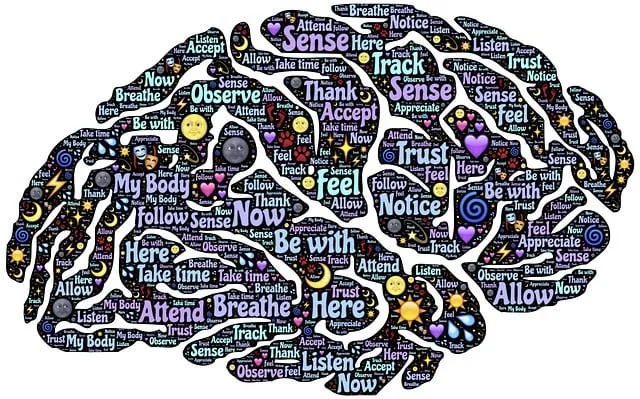Parker Kaiser Permanente's behavioral health services offer comprehensive stress management through workshops focused on emotional intelligence, communication, and mind-body connection. These interactive sessions, emphasizing cultural sensitivity, utilize evidence-based tools like mindfulness and cognitive reframing to improve mood, reduce stress, and enhance overall mental wellness. Evaluations combine qualitative and quantitative data to assess workshop effectiveness and tailor interventions for diverse populations.
Stress management workshops are an effective way to empower individuals in navigating life’s challenges. Parker Kaiser Permanente, a leader in behavioral health services, offers a unique approach focused on holistic well-being. This article explores how their workshops engage and equip participants with practical tools. We’ll delve into designing interactive sessions, evidence-based techniques, and measuring success through evaluation. Discover how these workshops foster long-term stress resilience, mirroring Parker Kaiser Permanente’s commitment to behavioral health excellence.
- Understanding Stress: Parker Kaiser Permanente's Approach
- Designing Engaging Workshops for Behavioral Health
- Practical Tools and Techniques for Stress Management
- Measuring Success: Evaluating Workshop Effectiveness
Understanding Stress: Parker Kaiser Permanente's Approach

Stress is a universal experience that can stem from various sources, affecting individuals both physically and mentally. Parker Kaiser Permanente recognizes this and has developed a comprehensive approach to stress management through their behavioral health services. They understand that stress isn’t merely an emotional response but a complex interplay of factors influencing our daily lives. By focusing on the mind-body connection, their workshops aim to empower individuals with effective coping strategies.
One key aspect of Parker Kaiser Permanente’s program is fostering social skills and emotional intelligence. These workshops encourage participants to develop healthier communication methods and enhance their ability to manage and interpret emotions, both in personal and professional settings. Additionally, topics like burnout prevention are addressed, providing valuable insights into maintaining work-life balance and promoting overall well-being.
Designing Engaging Workshops for Behavioral Health

When designing workshops for behavioral health, engaging and effective sessions are key to fostering positive outcomes among participants. At Parker Kaiser Permanente behavioral health services, we recognize that each individual’s journey with mental wellness is unique, necessitating tailored approaches. Our workshops strive to create an interactive and supportive environment where individuals can learn valuable skills in stress management, mood regulation, and communication strategies.
Incorporating elements of Cultural Sensitivity in Mental Healthcare Practice ensures that our workshops are inclusive and responsive to the diverse backgrounds of our attendees. By fostering open dialogue and promoting understanding of different perspectives, we aim to create a safe space for learning and growth. Through a blend of presentations, group discussions, and hands-on activities, participants actively engage with content, enhancing their ability to apply these strategies in daily life.
Practical Tools and Techniques for Stress Management

At Parker Kaiser Permanente behavioral health services, we understand that stress management is a vital component of overall well-being. Our workshops provide practical tools and techniques to help individuals navigate the challenges of daily life with resilience and equilibrium. We incorporate evidence-based strategies such as mindfulness meditation, cognitive reframing, and progressive muscle relaxation, empowering attendees to foster mood management and promote mental wellness.
Through our Community Outreach Program Implementation, we bring these stress management skills to diverse communities, ensuring accessible support for all. Our workshops are designed to be interactive and engaging, using real-life scenarios and group discussions to enhance learning. By the end of each session, participants gain actionable insights and practical skills to reduce stress, improve focus, and cultivate a more positive mindset.
Measuring Success: Evaluating Workshop Effectiveness

Evaluating the success and effectiveness of stress management workshops is a crucial aspect of ensuring positive outcomes for participants. Parker Kaiser Permanente behavioral health services utilize a multi-faceted approach to measure success, encompassing both qualitative and quantitative data collection methods. This involves pre- and post-workshop assessments to gauge changes in stress levels, mental well-being, and resilience among attendees. By comparing these results, the organization can objectively assess the impact of the workshops on individuals’ behavioral health.
Moreover, feedback from participants through surveys and focus groups offers valuable insights into the practical application and relevance of the workshop content. This qualitative data complements quantitative metrics, providing a comprehensive understanding of the program’s effectiveness. As previously mentioned, integrating these evaluation strategies allows for continuous improvement in Social Skills Training and Community Outreach Program Implementation initiatives, ensuring that mental health professionals can better manage risks and deliver tailored interventions for diverse populations within Kaiser Permanente.
Stress management workshops, as offered by Parker Kaiser Permanente’s behavioral health services, prove to be effective tools in empowering individuals to navigate life’s challenges. By combining education on stress understanding with engaging workshop designs and practical tools, these sessions enhance participants’ resilience and overall well-being. Measuring success through evaluations ensures continuous improvement, making these workshops a valuable resource for those seeking healthier coping mechanisms.






